Filter by
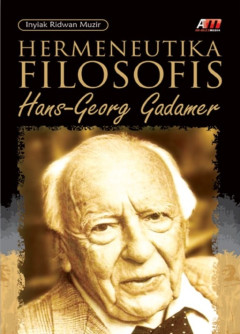
Hermeneutika Filosofis Hans-Georg Gadamer
Dunia filsafat adalah dunia yang penuh dengan perdebatan panjang Tidak jarang hanya karena masalah satu kata atau pemahaman saja bisa memunculkan perdebatan sengit bahkan hingga berdekade-dckade lamanya. Namun. justru perdebatan itulah yang menjadi esensi dari kehidupan berfilsafat. karena yang dicari adalah sebuah kebenaran hakiki, yang tentu harus melibatkan banyak proses aksi- reaksi. tesis-…
- Edition
- 1
- ISBN/ISSN
- 979-25-4469-0
- Collation
- Soft Cover, 280 hlm, 14x21cm
- Series Title
- Filsafat
- Call Number
- 100

Mendambakan Kerajaan: Ibadah, Wawasan Dunia, dan Pembentukan Budaya (Liturgi …
Filsuf James K. A. Smith membentuk kembali proyek pendidikan Kristen di Mendambakan Kerajaan. Jilid ini adalah yang pertama dari seri buku tiga-jilid yang pada akhirnya akan menyediakan theologi budaya yang komprehensif. Seluruh serinya akan membahas masalah penting dalam ontologi, antropologi, epistemologi, dan filsafat politik. Mendamakan Kerajaan memfokuskan pendidikan di sekitar tema liturg…
- Edition
- 1
- ISBN/ISSN
- 978-602-393-132-3
- Collation
- Soft Cover, 304 hlm, 14x21cm
- Series Title
- Liturgi Budaya
- Call Number
- 264.001
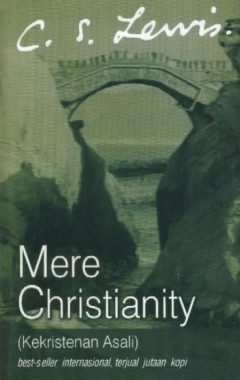
Mere Christianity: Kekristenan Asali
Sebagai salah satu introduksi yang paling populer dan dicintai mengenai iman Kristen yang pernah ditulis, Mere Christianity telah terjual sebanyak jutaan kopi di seluruh dunia. Buku ini menyajikan secara utuh siaran legendaris Lewis pada tahun-tahun peperangan, siaran-siaran yang dimaksudkannya untuk sekadar "menjelaskan dan membela kepercayaan yang umum bagi hampir semua orang Kristen di segal…
- Edition
- -
- ISBN/ISSN
- 9795421980
- Collation
- Softcover; 308 hlm.; 14.7 cm x 20.8 cm
- Series Title
- -
- Call Number
- 230
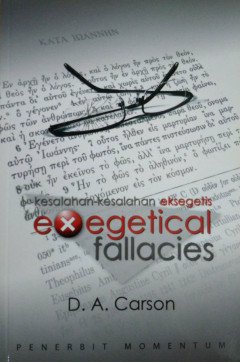
Exegetical Fallacies: Kesalahan-kesalahan Eksegetis
Buku ini adalah buku wajib bagi para dosen, hamba Tuhan, dan para murid Alkitab yang serius. Pendekatan Carson yang metodologis penuh dengan kebijaksaan, tajam, dan disampaikan dengan jelas. Thomas Schreiner - Journal of the Evangelical Theological Society.
- Edition
- 1
- ISBN/ISSN
- 9789793292793
- Collation
- Softcover; 226 hlm.; 14 x 21 cm
- Series Title
- Studi Biblika
- Call Number
- 220.601
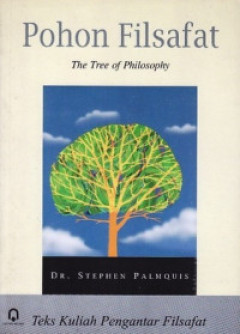
Pohon Filsafat
Buku ini, Pohon Filsafat : Pengantar bagi Peminat Filsafat, merupakan terjemahan dari The Tree of Philosophy : A course of Introductory Lectures for Begining Students of Philosophy. Buku ini merupakan teks kuliah Pengantar Filsafat yang diajarkan di Hong Kong Babtist University. Bidang yang dikaji mencakup seluruh tubuh Filsafat: akar (metafisika), batang (logika), cabang (ilmu), dan daun (onto…
- Edition
- 1
- ISBN/ISSN
- 979-3237-21-X
- Collation
- Soft Cover, 582 hlm, 15x21cm
- Series Title
- -
- Call Number
- 107
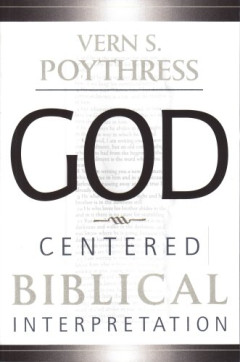
God Centered Biblical Interpretation
Theologically and pastorally profound, this study of biblical hermeneutics builds on Trinitarian presuppositions, while exposing the idols that lead interpretation astray. Poythress emphasizes the interpreter's spiritual qualifications along with linguistic principles.
- Edition
- -
- ISBN/ISSN
- 9780875523767
- Collation
- Softcover; 238 hlm.; 15 x 22 cm
- Series Title
- -
- Call Number
- 220.601
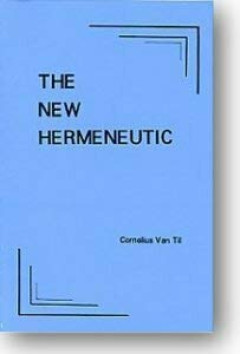
The New Hermeneutic
In earlier publications the present writer pointed out that the synthesis between a theology based on that of the Ref'ormcrs and a theology based on the philosophy of Kant is an intellectual and spiritual monstrosity. In it Kant, not Calvin is the real victor. The result is the destruction of an intelligible basis for human predication. What is needed is a really Reformational philosophy and th…
- Edition
- -
- ISBN/ISSN
- -
- Collation
- Softcover; 230 hlm.; 14 x 21 cm
- Series Title
- -
- Call Number
- 220.601
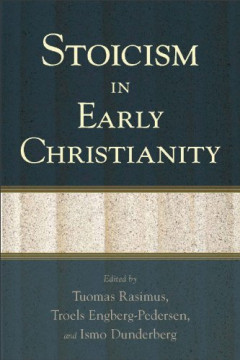
Stoicism in Early Christianity
How usefully do distinctly Stoic ideas illuminate the meaning of first and second century texts? This book suggests that early Christians—the authors of New Testament and noncanonical writings, including some early apologies—were often more influenced by Stoicism than by Middle Platonism. This insight sheds an entirely new light on the relationship between philosophy and religion at the bir…
- Edition
- -
- ISBN/ISSN
- 9780801039515
- Collation
- Softcover; 314 hlm.; 14.99 x 22.61 cm
- Series Title
- -
- Call Number
- 261.2

Redeeming Science: A God-Centered Approach
These and other points of contention cause some Christians to view science as a threat to their beliefs. Redeeming Science attempts to kindle our appreciation for science as it ought to be-science that could serve as a path for praising God and serving fellow human beings.
- Edition
- -
- ISBN/ISSN
- 9781581347319
- Collation
- Softcover, 381 hlm, 15.2 x 22.8 cm
- Series Title
- -
- Call Number
- 261.55
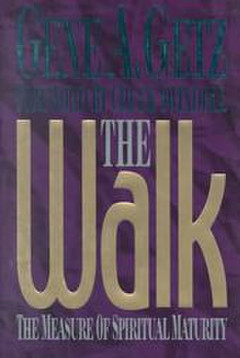
The Walk: The Measure of Spiritual Maturity
In "The Walk", Dr. Gene Getz draws from the ministry of the apostle Paul for a description of what the church should be. By holding Paul's life and work up as the standard and by detailing 12 "measuring sticks" of maturity, Dr. Getz challenges today's pastors and lay leaders to "become the glorious that measures up to the stature and fullness of Christ", despite contemporary cultural pressure t…
- Edition
- -
- ISBN/ISSN
- 0805461574
- Collation
- Softcover; 242 hlm.; 15 x 23.5 cm
- Series Title
- -
- Call Number
- 262.0017
 Computer Science, Information & General Works
Computer Science, Information & General Works  Philosophy & Psychology
Philosophy & Psychology  Religion
Religion  Social Sciences
Social Sciences  Language
Language  Pure Science
Pure Science  Applied Sciences
Applied Sciences  Art & Recreation
Art & Recreation  Literature
Literature  History & Geography
History & Geography